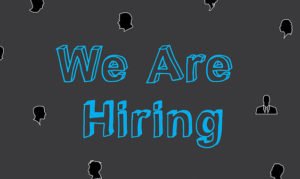This is a topic which is universal to all people. We are all born and raised with a specific system of value by which we make important decisions, assumptions and judgments. A lot of it is subjective because it is directly influenced by the way we were brought up. There are also stereotypes by which we unconsciously create a picture of someone or something which, in most cases, isn’t true. How so? Imagine you’re invited to a friend’s party and he tells you that he wants to introduce you to an acquaintance that has a successful business running. You arrive there and he tells you to try and guess whom he was talking about. Now, there are dozens of people there, the majority of them who are well dressed and well groomed. Naturally, the first instinct and stereotype is to assume that a successful business owner would dress in professional attire. Judging by that, it’s difficult to guess because most of them are dressed in a similar fashion. To your surprise, your friend tells you that you’re completely wrong from the get go. He averts your eyes from the center of the room to the small corner next to the bathroom. You see a man with a shy demeanor, dressed in a plain shirt whose haircut doesn’t exactly scream norm.
Why is this out of the ordinary? We’re all indoctrinated from the beginning that successful people dress in a suit and exert a powerful extroverted demeanor so we always picture that in our mind when such a topic arises. Our judgment and expectation is solely based on that. In other words, we are biased, because we take away the possibility of a person’s success by the way they dress and hold themselves.
This is crucial in a hiring process. Any candidate has to be shown the courtesy of an open mind to present themselves. Of course, personal bias will always come into play but how we handle that is what’s important.

How to recognize and handle bias
This is the tricky part. I’m sure you heard the saying to never judge a book by its cover which is easier said than done. Having an open mind and being neutral in most cases is quite difficult because our thoughts and how we perceive the world basically make us who we are. A recruiter or a hiring manager will mostly have a clear vision of what the ideal candidate would be for a specific position. The stronger the character of the hiring person is, the stronger the bias will be. But how can we eliminate the notion of bias knowing that it might impede our judgment? We first have to recognize it by evaluating anything a candidate has to offer in conjunction with what the company’s organizational, strategic and cultural goals are. That’s the safest and most important tool you have at your disposal if you’re suspecting your bias comes into play.
Here’s an example. You’re looking for a senior telesales agent and the candidate you’re interviewing has a weak handshake along with the fact that he barely finished high school. Red flags right there because an assumption is that the aggression needed for good sales isn’t there. You tell him to sell you his watch and you’re baffled. His sales skills are top-notch and he could sell ice to a polar bear. You’re conflicted because you believe a candidate should have a strong character to do that job but you’re clearly biased because his sales skills will probably be enough to reach the company’s financial target for the next quarter. That’s one way not to deceive yourself.
Another way to help yourself is if you have someone else on the interview with you. That’s almost an MO today because recruiters usually do interviews with hiring managers present. You simply discuss it over and compare your opinions. It’s easier and a different point of view can expand your horizons on certain things. If we don’t count social interactions, a standardized process will also put things more into perspective because if you have it in place, your focus will be more on adhering to the process which will ensure unbiased decisions.

Can bias ever be eliminated?
As mentioned above, we are driven by our own worldview. It’s difficult to say that it can be done because bias is everywhere, in details you wouldn’t even think of. Your surname, your age, your background, the color you used for your CV template – no, I’m not kidding. This is just the tip of the iceberg. Where is everything else when it comes to how others perceive you in person? There’s a multitude of reasons why someone wouldn’t see you as a fit in their company. How can you fight this? Don’t ever think that you can change how others think, specially hiring managers. The only thing you can do is to influence their point of view by changing yourself. I don’t mean to turn this article into a self-development guru advice but the best thing you can do is to learn your trade and work on your soft skills. That will ensure someone will eventually recognize your worth.
What can we as recruiters or hiring managers do? We can be more conscious of this issue. We can be more observant to recognize the fact that our notion of something might not be realistic or beneficial for the company. We should focus more on the endgame because the endgame will construct the right steps in our process, and that means picking the right candidate without undermining someone’s capabilities thus hurting the company in the long run.
Takeaway
This is an ongoing issue on which we all have to continue working on. Many digitalized tools can be used to minimize the chance of bias but we have to work on ourselves the most. We have to put in balance our personal views and the strategic goals of a company and things should work out well.
